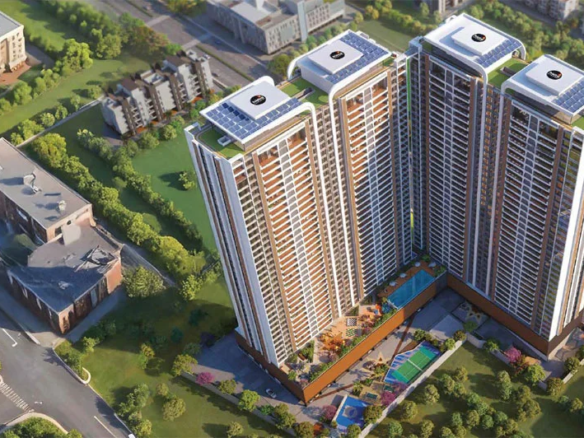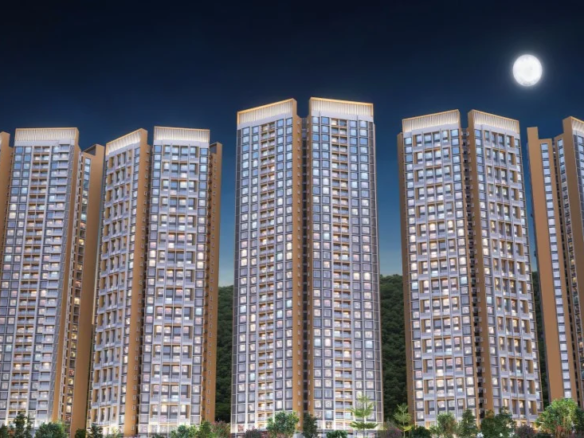In India, there are two major types of property ownerships i.e. freehold and leasehold properties. The major difference between freehold and leasehold property in India is the ownership tenure.
In case of a freehold property, the land ownership stays with the owner for an indefinite period of time. Whereas, in a leasehold property, the ownership of the land stays with the owner for the period mentioned in the ‘lease agreement’.
Usually it is for 99 or 999 years depending on the competent authority that is governing the property. To give you an example, the land parcels in Hinjewadi phase 2 and phase 3 are leased from MIDC for a period of 99 years by the developers.
Freehold Property
If you have purchased a freehold property, you own the land it is built on and also the house. In the case of apartments, the owner of the house becomes a shareholder in the property. You can live there for as long as you desire. You will have the right to make alterations in the house or redo some parts of the house. You might have to take permission from authorities if you bring about structural changes, (especially in case of old buildings).

To understand it better, read the term by splitting into two i.e. free-hold. This means that the estate you are buying is free from the hold of any entity, besides the owner. So, the owner enjoys complete ownership and can use the land for any purpose (sell, renovate or transfer), keeping the local regulations in mind.
Leasehold Property
In case you have purchased a leasehold property, you have the right to reside there for a stipulated period of time. Here, the buyer is not the owner of the property or the land it is situated upon. In case of a leasehold property, you will have to pay ground rent to the owner or the leaseholder. Once the set period in the lease expires, the ownership of the property is given back to the landowner. Majority of the leases are roughly given for a period of 99 years. For those opting for leasehold properties, it is important to know the tenure of the lease as it will influence the value of the property. It is possible to extend the leasehold to 999 years.

Difference between Freehold & Leasehold Property
| BASIS FOR COMPARISON | LEASEHOLD PROPERTY | FREEHOLD PROPERTY |
| Meaning | Leasehold means the lessor purchases the right to occupy and use the property for a stipulated tenure. | Freehold property is the one, on which the owner has the full-fledged rights as to its ownership and use. |
| Ownership | State/Government remains the ultimate owner of the estate leased. | Buyer enjoys the absolute ownership. |
| Tenure | Specific tenure, which can be extended through renewal. | No tenure |
| Rights | Lessor has the right to use, mortgage, rent, transfer for a limited time. However, the transfer may require the approval of the concerned authority. | Owner has the right to use, mortgage, rent and transfer. |
| Mortgage | It is not easy to a mortgage. | It can be easily mortgaged. |
| Alteration | Lessor does not have the right to modify or alter the property, according to his wish. | Owner can make alterations as desired, except structural changes which require the permission of the relevant authority. |
| Annual rent or Tax | Ground Rent or Lease Rent | Property Tax |
| Cost | Based on upfront cost, it is relatively cheaper, however, lease renewal charges are generally high. | Expensive |
What type of properties are preferred by buyers?
Buyers usually prefer investing in freehold property due to the stability and chances of capital growth associated with it. Additionally, a freehold title gives buyers complete ownership of the property bought as against a leasehold title in which the land belongs either to the State Authority or the developer, who has purchased the land to construct the project.
Given a choice, and if the budget permits, it is preferable to invest in a freehold alternative, given the better clarity on the future. It is also easier to leverage a freehold property to procure funds in case of future requirements
Can the government take back freehold land?
Freehold title gives you complete ownership of the building and the land. If so, how can the government take back freehold land?
Despite the kind of land, you have, the government can decide to take it back if the land is in the way of developmental activities like industrialization or urbanization. You will, of course, be compensated either by giving alternate land or price or both. Compensation can vary, but government has a very clear policies of land acquisition.
Source : 99Acres, Magicbricks, Realtynews




